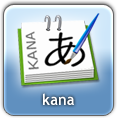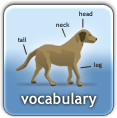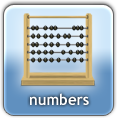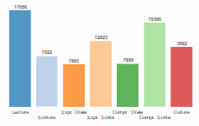| Grammar |
COPULA DA / DESU (だ / です)
DESU (です) is a copula positioned at the end of the Japanese sentence to express politeness. The mistake for a foreigner is to translate it as the verb “to be” in all circumstances. Although that’s often possible, it’s primarily used to complete a Japanese sentence to make it a grammatically valid statement. That’s the role of a “copula” in grammar.
In the first example below, です is necessary for the statement to be correct.
| Bengoshi desu. |
| I am a lawyer. |
In addition to making the statement valid, the copula です here adds a polite tone. We know that the lawyer is talking with a client, for example, but very certainly not a close friend or family. If that were the case, the copula です would have appeared in its plain form, which is DA (だ).
| Bengoshi da. |
| I am a lawyer. |
In the two first examples, です / だ are translated as “to be.” Moreover, we can see that the concept of politeness provided by ですis not always translatable (in English, translations are the same in both examples).
Let’s observe a different situation where です cannot be translated as “to be,” but is only used to express politeness:
| Oishii desu! |
| It's tasty! |
Here, we have an い adjective. In Japanese, such adjectives behave like verbs so much that they can be conjugated! い adjectives are therefore self-sufficient to make the statement valid. In other words, です only provides politeness in such statements. The same sentence with a friend would have been:
| Oishii! |
| It's tasty! |
Notice that we don’t use だ here as before. It would be grammatically wrong. So it’s better to translate おいしい as “to be tasty” rather than “tasty.”
Here is a non-exhaustive overview on how to use です
| Context | Plain | Polite |
|---|---|---|
| Adjective I (It’s tasty) |
おいしい | おいしいです |
| Semi-adjectives NA (I’m fine) |
元気だ げんきだ |
元気です げんきです |
| Noun (I’m a lawyer) |
弁護士だ べんごしだ |
弁護士です べんごしです |
Past form でした and だった
In the past, the copula です becomes でし た (DESHITA), and the plain form だ becomes だった (DATTA).
However, depending on whether です is used to complete a minimal valid statement (だ would replace です in informal speech), or whether it’s a mere sign of politeness (だ would not be possible), the past is used differently.
| Context | Plain | Polite |
|---|---|---|
| Adjective I (It was tasty) |
おいしかった (it’s the adjective that is in the past) |
おいしかったです (it’s the adjective that is in the past) |
| Semi-adjectives en NA (I was fine) |
元気だった げんきだった |
元気でした げんきでした |
| Noun (I was a lawyer) |
弁護士だった べんごしだった |
弁護士でした べんごしでした |
Since い adjectives behave like verbs, they can be conjugated in the past. The common mistake among beginners is to say おいしいでした instead of おいしかったです.
Negative form
The negative form of the copula です may be surprising for a beginner.
| Affirmative | Standard Negative |
|---|---|
| です | ではありません (dewa arimasen) ではないです (dewa nai desu) |
| だ | ではない (dewa nai) |
When speaking, it’s very common to use a contracted form in which では becomes じゃ.
| Affirmative | Oral Negative |
|---|---|
| です | じゃありません (ja arimasen) じゃないです (janai desu) |
| だ | じゃない (janai) |
| Bengoshi de wa arimasen. (forme polie standard) |
| I am not a lawyer. |
| Bengoshi de wa nai. (forme neutre standard) |
| I am not a lawyer. |
| Aucun commentaire |



















